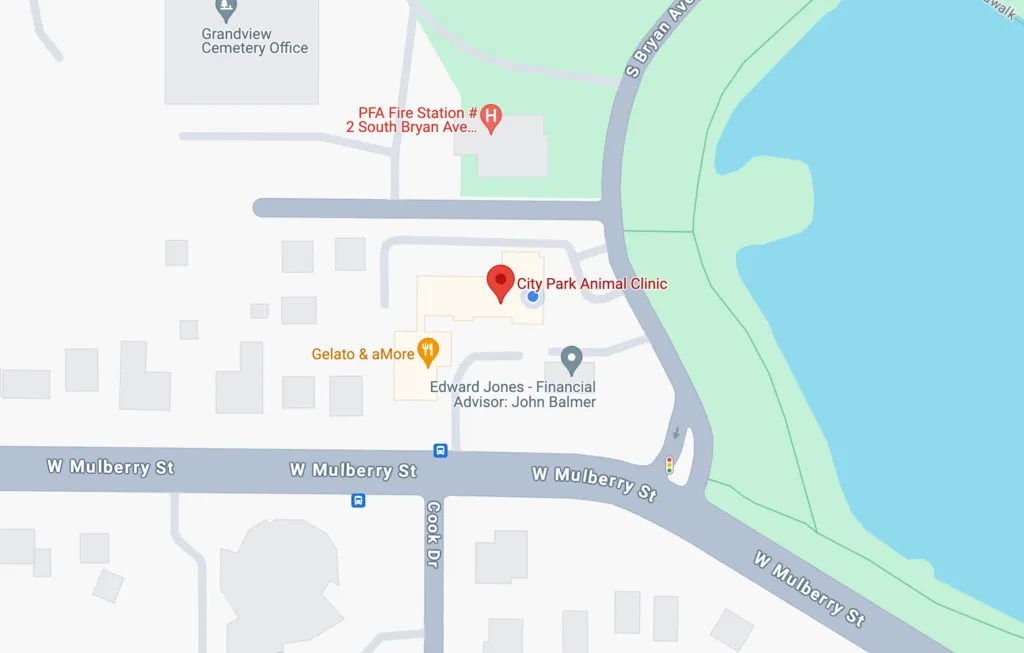- posted: Aug. 19, 2020
Wildfires and Animals
It seems recently that fires keep popping up all over Colorado. With the Cameron Peak Fire hitting especially close to home here in Fort Collins, it is important to know what precautions should be taken with your pets. It is no secret that Fort Collins was exposed to, and still is exposed to smoke from the fire occurring along Highway 14. What does this poor air quality mean for pets?
The composition of smoke depends on what is being burned. When an animal inhales smoke it brings a combination of toxic gases, such as carbon monoxide and hydrogen cyanide into its throat, nose and lungs. Smoke inhalation can damage the respiratory tract leading to burns, physical irritation, or swelling and blockage of the airway. Toxic gases can impair oxygen delivery leading to hypoxia and possible tissue death. Obviously, the closer proximity to the fire the worse the residual effects of smoke inhalation can be. Exposure to wildfires results in a sustained, lower dose exposure to smoke. The main concern here is inhalation of particulate matter. These very small particles can bypass the body’s natural filters and reach the lower airways.
A general rule of thumb is if you can see or feel the effects of smoke yourself, you should also take precautions to keep your animals safe. Animals with comorbidities such as cardiovascular or respiratory problems are at a higher risk of adverse effects when exposed to smoke and should be monitored closely.
Sign/symptoms to watch for during periods of poor air quality are:
- Coughing/Gagging
- Eye Irritation or Excessive Watering
- Nasal Discharge
- Increased Breathing Rate
- Difficulty Breathing (open mouth breathing or increased noise when breathing)
- Reduced appetite or thirst
If your pet is experience any of these symptoms, please contact City Park Animal Clinic for further direction.
To protect your pet during times of poor air quality limit the time spent outside. Opt-out of a strenuous hike and rather take a brisk walk around the neighborhood. Completely limit outdoor activities when air quality alerts are in affect and instead just let your pet out for a brief bathroom break.
If you have any questions about the effects of wildfire smoke on your pet, do not hesitate to call.



